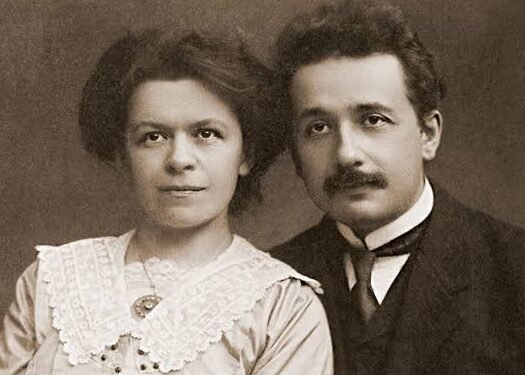Introduction
We are used to hearing terms such as immunity or immune system and even more so in times of pandemic. This concept refers to the biological field and we could define it, in a general way, as the capacity of our organism to defend itself against any internal or external threat. It is therefore possible, pragmatic and necessary to speak of psychological and emotional immunity, as ways to prepare ourselves and improve our ability to face the challenges of everyday life.
This preparation would be helpful in the personal sphere, in the construction of our educational and work profile and in our dynamics at work, as well as in our interpersonal relationships -partners, parenting, friendships or family-, in our communities and social interactions and even in our search for vital meaning and our spirituality.
DET and Emotional Immunity
The Dynamic Emotional Theory -DET (Saxa Stefani, 2021)-, proposes that behavior is based on the emotional sphere –on What We Feel-, which is itself articulated with the cognitive sphere -What We Think- and is activated from the behavioral sphere -What We Do-. We know that the way in which we operate emotionally will determine our psychological wellbeing.
One of the evidences of the influence that our fundamental emotional life has on our mental health is found in the Attachment theory. It is a scientific fact that an unsatisfactory early emotional attachment -visible in insecure attachment relationships- is predictive of future difficulties, not only in intellectual development, but particularly in the development of balanced interpersonal relationships later in youth and adulthood.
The correspondence between emotional and biological immunity is revealed by the experience between the agent and the host of the dynamics of this interaction.
When we come into this world, our self (host) will experience or is at the mercy of a multitude of stimuli and demands that function as excitatory agents, both internal and external, such as sensations of hunger, cold, noise, smells or contact. All these sensations are organized through the attention given to the child by caregivers (also called attachment figures in psychology).
In the early stages, our psyche considers those who give us care as mere “objects”. We consider them in relation to our own needs. Others also exist, either to satisfy our desires, related to survival, or as obstacles to the achievement of those desires. In fact, many people remain fixated without further development stages of emotional construction, characteristic of narcissistic (neurotically attached) and even psychopathic personalities.
For the sake of clarity, we include here a brief parenthesis to differentiate between neurosis, psychosis and psychopathy.
The neurotic always has a register of reality, but “overreacts” to it.
The Neurosis has different degrees of severity that will be determined by “how much” reality we are able to manage.
The Psychotic, on the other hand, constructs a “parallel” reality that he lives as real because the one he has is too painful for him.
Finally, The Psychopath perceives reality, but ignores it because he is pathologically focused on his own need.
In fact, how we establish our neurotic personality is closely linked to our first exercise or practice field of interaction in childhood, which has a strong primordial accentuation on the self and the projection of all its material and also the affective needs. Little by little, and with difficulties on the way, we incorporate a more complete vision of the caregiver and from that primary link, with other people and objects in the world around us.
When the communication between the agent and the host, or between our psyche and the objects and people of the outside world takes place, a learning process is generated from the experience. This learning condenses a lot of information, but of all this accumulation of data, what we register and store is essentially emotional information. The association between what happens and my emotional perception will build an enduring internal network that we will expand and associate with new and future situations.
Bowlby refers to a model of mental representation – An internal working model- that uses previous attachment information in future relationships. Pichon-Rivière, for his part, proposes the conformation of an operative referential conceptual scheme, or ECRO, which the psyche uses to categorize new situations. It does not matter from which psychological theory we approach this phenomenon, what we can say is that all previous (significant) registers will be used, operationalized in the current situation, so we propose the following formula:
What do we call emotional immunity?
It is the capacity to understand or resolve a situation that activates the internal emotional network in a highly functional way. Sensitive resistance is minimized and the accommodation and assimilation of new information is maximized, facilitating learning from a (more) neutral position.
The higher the emotional immunity we perceive, the lower the emotional distortion and the increase of communicative quality and openness.
In fact, emotional immunity is not related to not responding emotionally to stimuli, but rather the opposite:
-Placing the activated emotional contents at the service of emotional management.
-Expanding the conscious perceptual deployment of these contents.
-Articulating the internal and external recognition of emotional communication.
Several authors have treated various forms of emotional communication since Freud with his concept of transference and countertransference, or Jung around the idea of collective unconscious or more recently as social intelligence.
To develop or increase emotional immunity in terms of complexity, amplitude or speed, we must first go from the registration of emotional evocation to the perception of the current situation. Then we can establish a relationship between the two that results in a functional, satisfactory and healthy behavioral response.
In short, emotional immunity implies that we possess the ability to:
(a) recognize the emotional need that an interpersonal or intrapersonal interaction, or situation requires.
(b) register the perceived emotions that have been summoned by that interaction or situation.
(c) process the information in relation to the type of interaction desired.
(d) assess and execute a satisfactory behavioral response
Therefore, Conscious Breathing and sensory activation are fundamental to manage these processes.
Transcending personal emotional immunity
In conclusion, emotional immunity is not itself empathy. For example, there may be a group of ten highly emotionally immune people in the same room who, nevertheless, have not learned or developed the ability to bond emotionally with others.
This is why we say that emotional immunity is a necessary but not completely sufficient condition for empathetic interactions to occur, whether they are natural or intentional.
Natural empathetic interactions will be simpler, since we tend to easily generate a natural empathetic emotional response when a person “likes” us, evoking pleasant emotions. On the other hand, to produce an intentional interaction with those who are “unpleasant” to us, we must make an effort to bring emotional immunity into play, allowing us an effective and healthy relationship dynamic.
Finally, to transcend from the individual to the family and the community, we should not only promote emotional immunity in individuals, but also foster spaces of collective emotional health in order to solidify sustainable and emotionally healthy social development.












